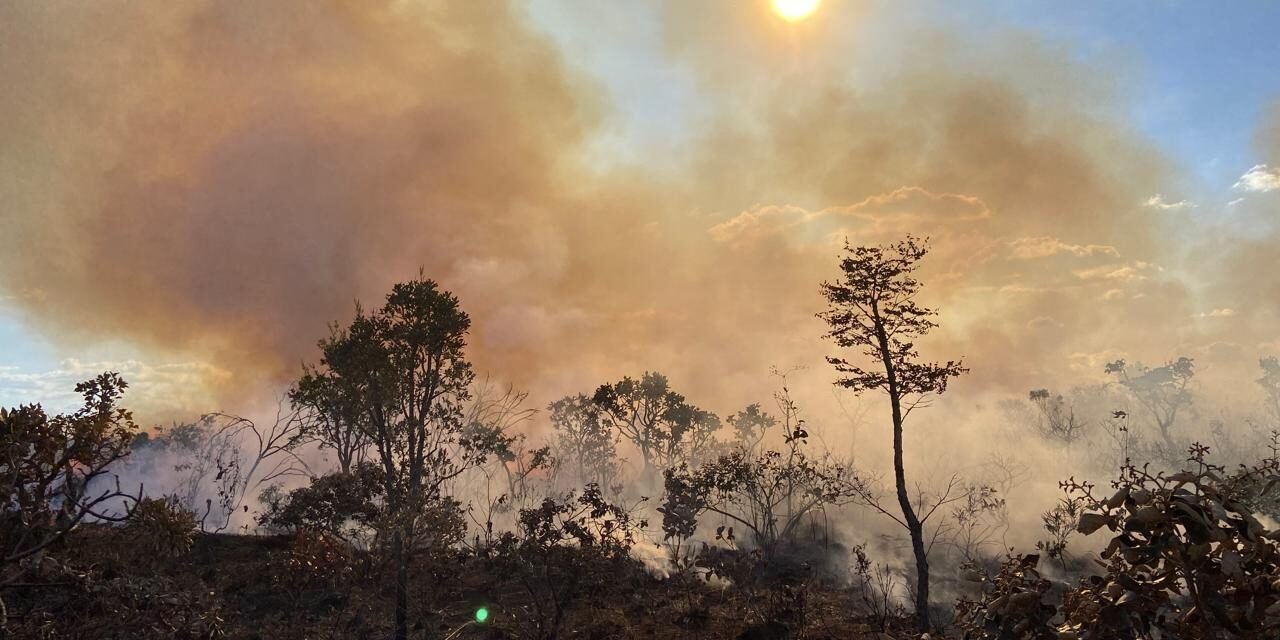More than 50 votes, supported by a narrative spread by agribusiness ideology, were able to take another step towards capital’s perverse desire to dismember a historic conservation struggle! With arms in the Senate, the Destruction Bill (PL 2159/2021) was approved in recent weeks and is about to throw open the gates to the destruction of our biomes, territories, communities, and their ancestral technologies.
The weakening of licensing rules has a high destructive potential for the advance of conflicts into 32.6% of Indigenous Lands and 80.1% of Quilombola Territories (TQs) in Brazil, according to information from a technical note published by the Socio-Environmental Institute (ISA). This destruction is also associated with fire, solely concerning criminal fires. The Agro is Fire Dossier, for example, reveals that fire is used as a weapon to consolidate land grabbing and deforestation, especially for the expansion of the agricultural frontier.
Cases like the fires on farms controlled by international pension funds in Matopiba, where thousands of hectares were burned, demonstrate how fire is used to cover up the invasion of public lands and environmental crimes, in addition to preparing areas for pastures or monocultures. In Mansidão, Bahia, 8,500 hectares were burned between August and October 2020 on farms linked to pension funds, directly impacting about 400 families from traditional communities. In Piauí, Fazenda Coelho, also associated with these funds, had more than 8,600 hectares of forest area destroyed by fires. These data reinforce that criminal fire is a strategic tool for the expansion of agribusiness and mining, with serious environmental and social consequences.
The absence of rigorous control and the impunity that may result from the lack of robust environmental licensing can further encourage the actions of criminals who see fire as a way to expel traditional communities from their territories, as well as to expand their interests in the financialization of nature. By facilitating the permanence of agribusiness in territories occupied by indigenous, peasant, and quilombola communities active in fighting fires, the Bill not only threatens ways of life and cultures but also aims to dismantle important environmental and territorial protection forces.
It is important to point out that this devastation also affects entities that often contribute to supporting communities. The Bill reduces the technical power of the National Environmental Council (Conama), and by allowing licensing in Conservation Units (UCs) without prior consultation, it weakens the multidisciplinary work of the Chico Mendes Institute for Biodiversity Conservation (ICMBio).
On this World Environment Day, Agro is Fire reaffirms its commitment to articulate in contributing to the conservation of biomes and the defense of the rights of the peoples and communities who have ancestrally inhabited them, thus also vehemently repudiating the approval of the Destruction Bill and its structural narratives, which represent a setback in the historical struggle of communities for nature conservation.
It is fundamental that society mobilizes against the Destruction Bill, a project that ignores climate urgency and the social and environmental impacts of its proposals, serving only one narrative: that of agribusiness. Fighting against the Bill is fighting for life, for socio-environmental justice, and for a future for all.
Articulação Agro é Fogo
Site: https://agroefogo.org.br/
Instagram: https://www.instagram.com/agroefogo/
Contact: agroefogo@gmail.com




